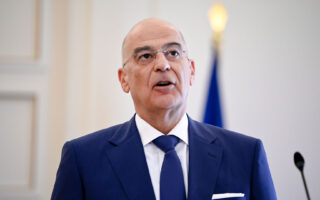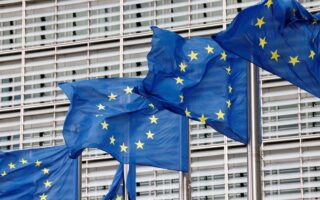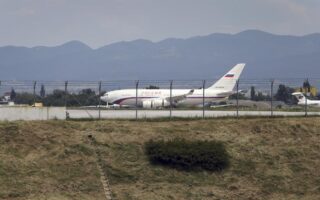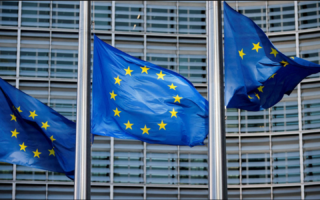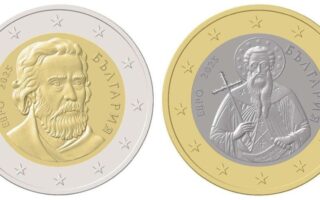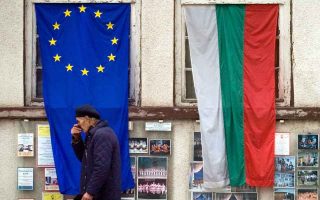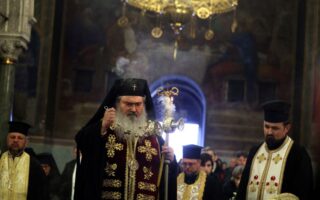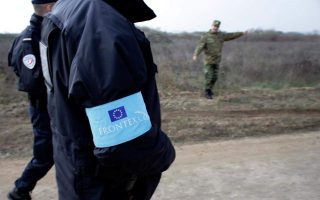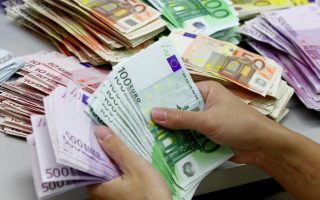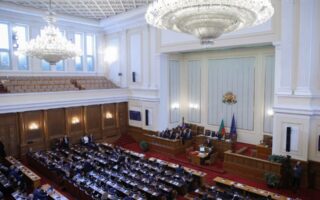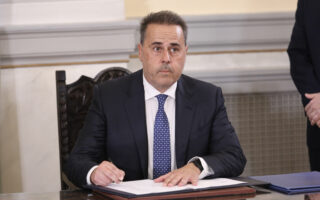European Commission’s Directorate-General for European Civil Protection and Humanitarian Aid Operations (DG ECHO) thanked Bulgarian firefighters operating in Greece as part of the EU Civil Protection pre-positioing program, on Monday.
BULGARIA
Greek Defense Minister Nikos Dendias signed a Letter of Intent on Thursday with his Romanian and Bulgarian counterparts for cross-border military mobility cooperation.
None of the countries that have yet to join the euro meet all accession criteria and many have even diverged from the long-set rules of euro membership, the European Central Bank has said in a report on prospective members.
Bulgaria Air is this month starting flights from Sofia to Iraklio Airport on Crete, the Bulgarian air carrier has announced.
Bulgarian voters head to the polling stations on Sunday for the sixth snap parliamentary election in three years, but analysts see little chance of it producing a stable coalition that can put an end to a prolonged period of political instability.
Bulgarian farmers were busy harvesting rose petals for their renowned oil this week, about a month earlier than the historical norm due to climate change that has ushered in warmer and more humid springs.
The European Commission hopes Northern Macedonia will begin accession talks with the EU the soonest possible and reiterated its position that bilateral disputes should not delay the accession process.
If Bulgaria fails to meet European Central Bank inflation targets in June, its planned accession to the eurozone in 2025 could be delayed by months, the country’s central bank governor has said.
Bulgaria’s populist There Is Such a People (ITN) party has declined to try to form a new national government, paving the way for President Rumen Radev to call snap elections.
Neophyte’s burial is scheduled for Saturday and the funeral rites will be led by Istanbul-based Ecumenical Patriarch Bartholomew, the spiritual leader of Eastern Orthodox Churches worldwide, and Bulgarian clergy.
The European Union’s border agency Frontex said on Thursday it will triple the number of its officers in Bulgaria from next month to help stem the amount of people crossing into the bloc from Turkey.
A 47-year-old woman was sentenced to eight years in prison by a Thessaloniki court on Monday, for her involvement in a network scamming people via telephone.
South Korea’s Hyundai Engineering and Construction won backing from Bulgaria’s parliament on Friday to proceed with talks on building two nuclear reactors, beating out a bid from US firm Bechtel. The two had been short-listed for the engineering, construction and commissioning of units 7 and 8 at the Kozloduy nuclear plant.
Bulgaria’s euro coinage will depict two Bulgarian Orthodox saints as well as a 7th or 8th century rock relief dating found in the country’s northeast, its central bank announced on Monday.
A Greek skier died after a group of skiers was hit by an avalanche at Bulgaria’s Borovets Ski Center on the northern slopes of Rila mountain range on Monday, Bulgarian media reported.
Greek State Minister Stavros Papastavrou met with Bulgarian Finance Minister Asen Vasilev in Sofia on Monday, following an invitation by the latter, and discussed expanding collaboration in interconnectivity and networks between the two countries.

